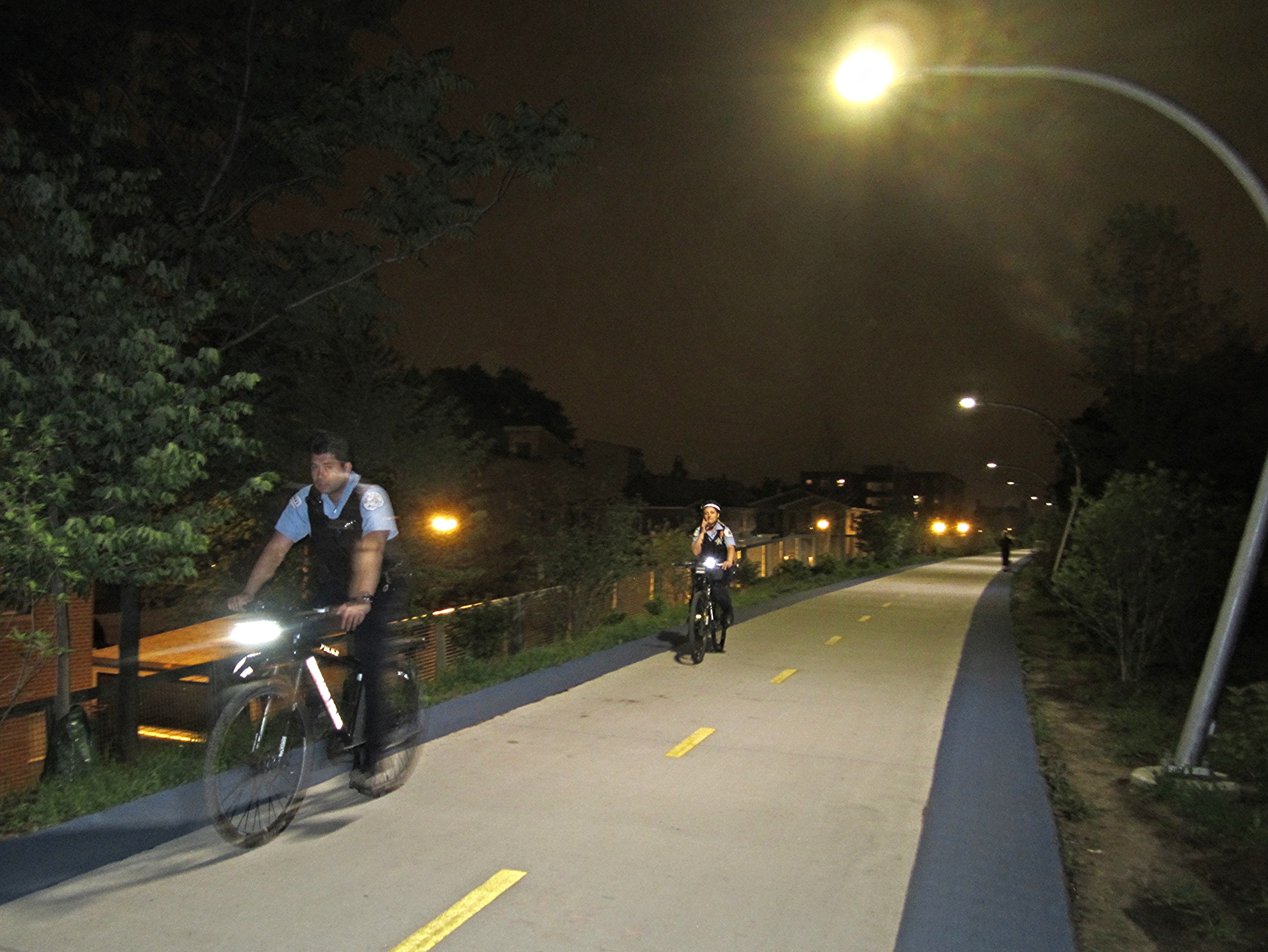While writing an upcoming article about traffic enforcement in Chicago’s neighborhoods of color, I recently spoke with Charles T. Brown, a transportation researcher and adjunct professor of planning and public policy at Rutgers University. I didn’t wind up using material from our interview for that article, but Brown discussed a study he recently conducted on how concerns about various issues, including violent crime and police profiling, function as barriers to bicycling in Black and Hispanic communities. While the research took place in New Jersey, the information is relevant to our city, and I thought Streetsblog Chicago reader who are interested in transportation justice matters would want to hear about it.
The goal of the study was to learn why some Black and Hispanic individuals choose not to bicycle, what prevents people of color who do bike from cycling more often, and how to encourage all Black and Hispanic people to bicycle more often. The study notes that many people of color live in urban areas where biking is a practical way to get around, and that cycling can serve as a “health intervention” in communities with worse health outcomes than the general population. For these and other reasons, such as the economic and social-cohesion benefits of cycling, it’s important to identify and address factors that are preventing people of color from riding bikes.
Along with second author James A. Sinclair, Brown staged intercept surveys of pedestrians in 34 New Jersey municipalities, with researchers buttonholing people on business strips, at transit stations, and in recreational areas in Black and Hispanic neighborhoods and inviting them to complete a survey on bicycling. 1,660 Black, Hispanic, or mixed-race individuals participated.
Many of the questions had to do with fears that keep people out of the saddle, and concern about police harassment turned out to be a significant issue for many respondents. When asked if they had ever been unfairly stopped by police while bicycling, 14 percent of all participants said yes, including 3 percent of female respondents and 21 percent of males. It's notable that seven times as many men as women reported having been unfairly stopped whiling biking.
The survey also listed eight potential barriers to bicycling more and asked participants to rank them in order of importance. Fear of traffic was the top-ranked concern, followed by fear of robbery and assault, pavement condition, and fear of being stranded. Number five on the list was fear of being profiled by the police. Rounding out the rankings in 6th, 7th, 8th place were the cost of bicycle maintenance, fear of verbal harassment, and pregnancy or having small children.
30 percent of all respondents said fear of robbery and assault was a barrier to bicycling, including 30 percent of non-bicyclists and 29 percent of bicyclists. Brown elaborated on this issue in a recent magazine article.
While the percentage of participants who listed fear of police profiling as a deterrent was much smaller, it was still a significant factor. 14 percent of all respondents said police profiling is an barrier, including 13 percent of non-bicyclists and 16 percent of bicyclists. In effect, people who actually ride bikes (and therefore may have had the experience of being unfairly stopped while biking) were more likely to name profiling as a barrier to cycling.
In addition, during a focus group conducted as part of the research, some Black participants stated directly that concerns about police harassment serve as a barrier to biking, Brown said. Both Black and Hispanic focus group members said they occasional change their routes within their communities due to concerns about profiling.
Again, these numbers are from New Jersey, so they may not line up with Black and Hispanic Chicagoans’ perspectives on the role of violent crime and profiling as a deterrent to bicycling. But recent homicide numbers, as well as the U.S. Department of Justice report released earlier this month that found that civil rights abuses by police are widespread here, suggest that concerns about crime and profiling are likely keeping many people of color from biking in Chicago as well.
Brown indicated that he feels a survey on barriers to biking in Black and Hispanic communities should also be conducted in Chicago. "Given the changing demographics [in the U.S.], and the increase in, and growing reliance on biking in communities of color, it's imperative that other cities conduct similar studies to better understand the barriers to biking for these populations," he said.
Want to provide feedback on this topic to Brown? He invites readers to contact him on Twitter at @CTBrown1911.




